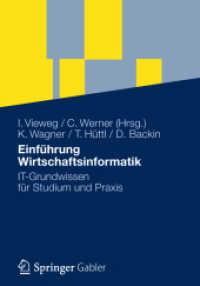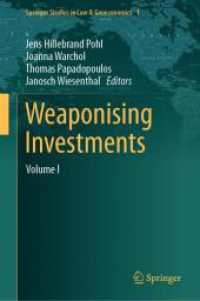- ホーム
- > 洋書
- > 英文書
- > Politics / International Relations
Full Description
Cultural economics as a field of research involves twoareas, culture and economy. Political decisionsconcerning such priority areas as the development ofregional institutions, support to the artists and culturalprogrammes for children and youth have important economicimplications.








